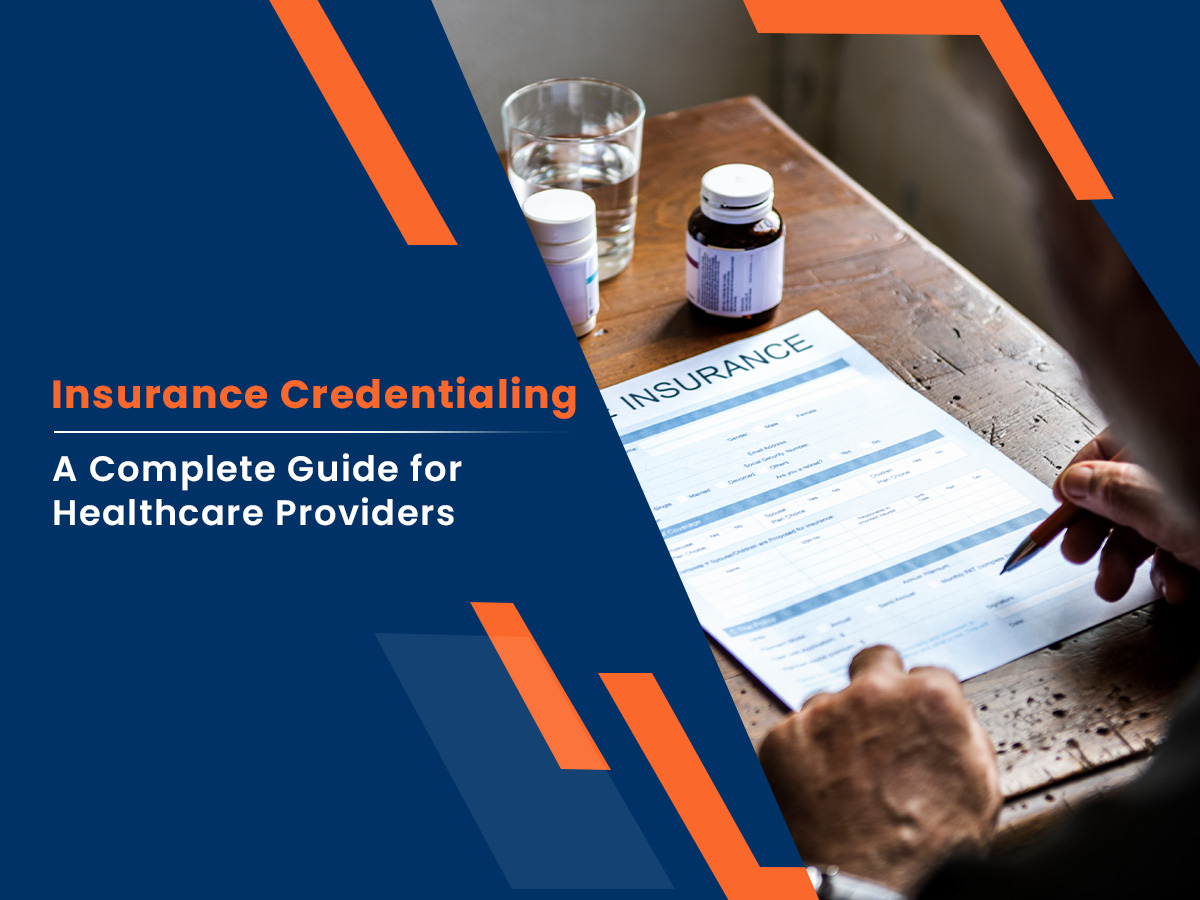Credentialing is a key process in healthcare, impacting everyone from doctors and nurses to medical assistants and administrative staff. At its core, credentialing verifies that healthcare professionals have the qualifications, skills, and experience to perform their duties safely and effectively. For medical assistants, understanding credentialing helps ensure smooth healthcare operations, builds trust, and promotes safety for patients.
Why is Credentialing Important?
Credentialing is essential for maintaining quality care standards in healthcare. The credentialing process verifies that professionals hold the proper certifications, licenses, and training required to perform their jobs effectively. This verification protects patients by ensuring that only qualified individuals can provide care. Credentialing also ensures that healthcare facilities and providers comply with legal and regulatory standards, which is crucial for maintaining the organization’s reputation and avoiding liability.
In many healthcare settings, including hospitals, clinics, and private practices, credentialing is mandatory. Without it, healthcare providers may face restrictions on their ability to offer services, receive insurance reimbursements, or participate in specific programs. Medical assistants, while they may not always require the same formal credentialing as physicians, still benefit from certification to enhance their credibility, competence, and career growth.
The Credentialing Process in Healthcare
The credentialing process typically involves several steps, each designed to confirm the qualifications of healthcare professionals:
- Verification of Educational Background
Credentialing begins with verifying educational credentials. This step confirms that healthcare providers attended accredited programs and met the required educational standards. For medical assistants, this means ensuring that they completed an accredited medical assisting program. - Checking Licenses and Certifications
In most states, medical professionals, including medical assistants, are required to hold valid licenses and certifications. The credentialing process involves verifying these credentials to confirm that healthcare providers meet regulatory requirements. For example, the Certified Medical Assistant (CMA) certification, offered by the American Association of Medical Assistants (AAMA), is commonly recognized and enhances a medical assistant’s employability. - Assessment of Work Experience and Skills
Credentialing assesses the healthcare provider’s practical skills and work history to ensure they have the required experience. This step involves reviewing work history, skillset, and any specialized training or skills, especially important for positions that interact directly with patients, like medical assistants. - Background Checks
Background checks are a fundamental part of credentialing. These checks verify the provider’s criminal record, history of malpractice claims, and other legal issues that may affect their suitability for healthcare roles. This step is especially important as it upholds patient safety and maintains the healthcare institution’s credibility. - Primary Source Verification
Credentialing organizations often use primary source verification (PSV), which means confirming credentials directly from the issuing institution. For example, rather than taking a copy of a medical assistant’s certificate at face value, the credentialing team will verify with the certification board to ensure it is valid. - Ongoing Monitoring and Re-credentialing
Credentialing is not a one-time event. Many organizations require re-credentialing every few years to ensure that healthcare providers remain qualified. For medical assistants, this might involve renewing certifications, maintaining continuing education credits, or demonstrating ongoing competence.
The Role of Medical Assistants in the Credentialing Process
Medical assistants play a unique role in the credentialing process. While their responsibilities may differ from those of doctors and nurses, their certification ensures they have the skills to assist healthcare providers, maintain accurate patient records, and provide quality patient care.
For medical assistants, obtaining certification, such as the CMA, is valuable. Certification signals to employers and patients that the medical assistant has completed the necessary training, possesses the required skills, and adheres to ethical standards. Furthermore, credentialed medical assistants can often access better career advancement opportunities, higher salaries, and more job stability.
The Benefits of Credentialing for Healthcare Providers and Patients
Credentialing has benefits for both healthcare providers and patients:
- Increased Patient Trust
Patients want to know they’re in safe hands. Credentialing ensures that everyone involved in patient care, from doctors to medical assistants, is qualified and trained, which boosts patient confidence. - Regulatory Compliance
Credentialing helps healthcare facilities comply with industry regulations and standards, reducing the risk of legal issues. For organizations receiving Medicare or Medicaid payments, credentialing is especially important, as non-compliance could result in denied reimbursements. - Enhanced Job Opportunities for Medical Assistants
Credentialing benefits medical assistants by improving their employability and opening doors to more opportunities. Certified medical assistants are more likely to find positions in reputable healthcare facilities, secure higher wages, and even transition into advanced roles within healthcare. - Reduced Liability
By verifying qualifications, credentialing reduces the risk of hiring unqualified individuals, lowering liability for healthcare providers and ensuring that they meet the standards required by law and insurance providers. - Improved Quality of Care
With credentialing, healthcare organizations maintain a high level of service quality. Qualified and credentialed medical assistants, for example, can assist in patient care, manage administrative tasks, and ensure accurate patient records, all contributing to better patient outcomes.
Challenges in Credentialing for Healthcare Organizations
While credentialing is crucial, it can also be time-consuming and costly. Healthcare facilities often face challenges in maintaining an efficient credentialing process:
- Time and Resources: Credentialing involves meticulous verification, background checks, and primary source verifications, which can be time-intensive.
- Maintaining Updated Records: Tracking licenses and certifications to ensure ongoing compliance can be challenging, especially in large organizations.
- Dealing with Regulatory Changes: Healthcare regulations frequently change, requiring facilities to stay updated and adjust their credentialing processes accordingly.
Despite these challenges, the investment in credentialing is essential for ensuring high standards in healthcare. Technology and specialized credentialing services can help alleviate some of these burdens, making the process more efficient and accurate.
Credentialing Solutions and How They Benefit Healthcare Organizations
Many healthcare organizations rely on credentialing services or software solutions to streamline this process. Credentialing services offer expertise in verifying credentials, managing data, and ensuring compliance, all while reducing the administrative burden. Credentialing platforms automate many tasks involved in credentialing, from primary source verification to continuous monitoring.
For medical assistants, being employed by an organization that invests in reliable credentialing processes can be beneficial. These systems ensure that the staff maintains its qualifications, which in turn upholds patient safety and organizational integrity.
Conclusion: The Value of Credentialing and How Apaana Healthcare Leads the Way
Credentialing is a cornerstone of the healthcare industry, ensuring that everyone from physicians to medical assistants meets high standards of care. For medical assistants, obtaining credentials like the CMA can significantly enhance their career prospects, increase trust from patients and colleagues, and ensure they have the skills necessary to deliver quality care.
At Apaana Healthcare, we recognize the importance of credentialing in healthcare. Our dedication to operational excellence means we’re committed to high standards in healthcare management. We specialize in outsourced services for health plans, including member enrollment, claims administration, medical billing & coding, and provider engagement. These services ensure that healthcare providers can focus on delivering quality patient care while we handle the backend processes, from credentialing to billing.
With Apaana Healthcare, you have a partner dedicated to cost-effective, efficient healthcare solutions tailored to your needs. Let us help you enhance your credentialing, streamline operations, and achieve better patient outcomes through our world-class healthcare management solutions.
FAQs
What is credentialing in healthcare?
Credentialing is the process of verifying that healthcare professionals, such as doctors, nurses, and medical assistants, have the necessary qualifications, licenses, and certifications to provide safe and effective care.
Why is credentialing important in healthcare?
Credentialing ensures quality care by verifying qualifications, protecting patient safety, maintaining regulatory compliance, and reducing liability for healthcare providers and facilities.
What role do medical assistants play in credentialing?
Medical assistants benefit from certification, such as the CMA, which demonstrates their skills and enhances their credibility. This process also supports their career growth and employability in reputable healthcare facilities.
What challenges are faced during credentialing?
Common challenges include time-intensive verification, maintaining updated records, and adapting to changing healthcare regulations. Many organizations address these issues with specialized credentialing services or software solutions.
How does Apaana Healthcare support credentialing?
Apaana Healthcare provides streamlined credentialing solutions as part of its healthcare management services, ensuring compliance, efficiency, and operational excellence for healthcare providers.





